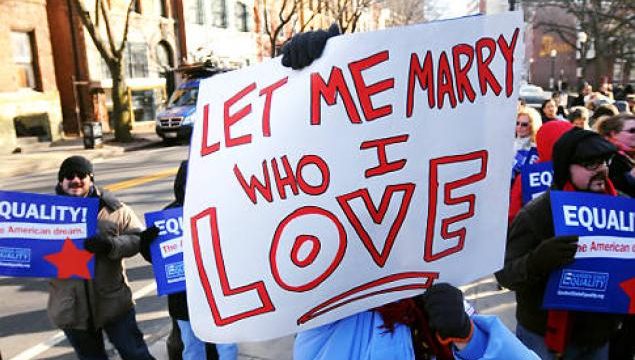North Dakota's Long History Of Regulating Intimate Personal Behavior

North Dakota has a lengthy history of controlling – or, at least, attempting to control given the practical matter of enforcement – private sexual activity. This legislative impulse stretches all the way back to territorial days.
In 1862 Dakota Territory – which then included both North and South Dakota – outlawed fellatio for both heterosexuals and homosexuals.
In 1885, roughly four years before the Enabling Act of 1889 would admit North Dakota into the union, that law was expanded to include anal intercourse.
In 1917, the state Supreme Court expanded the laws banning fellatio to include cunnilingus with their ruling in North Dakota vs. Nelson.
In 1927 a law permitting the sterilization of mentally or physically handicapped prison inmates was expanded by legislators to include “habitual criminals, moral degenerates and sexual perverts,” with the definition of “perverts” understood to include homosexuals.
I think we can all be thankful that law was repealed in 1965.
It wasn’t until 1973 that a more enlightened attitude toward private, personal relationships dawned in the state. That year a law setting the age of consent in the state at eighteen years also explicitly legalized adult, consensual homosexual relationships.
But in 2004 voters passed a ballot measure amending the state constitution to include an exclusionary definition of marriage, limiting it to one man and one woman.
If this recitation of the state’s forays into regulating private sexual and matrimonial relationships makes you feel uncomfortable, perhaps it should. Perhaps you’re shocked to be reading about things like anal sex, fellatio and cunnilingus in a column about public policy (more shocking, I’d argue, is the fact that our state government attempted to regulate these things).
These subjects are generally taboo in polite society – or were before oral sex tips became de rigueur for those magazines you see while checking out at the grocery story – because they were intensely private.
That feeling – that sex and marriage are private and should generally exist beyond the scope of government regulation – is at the heart of the fight against government restrictions on homosexual marriage.
The relationship between spouses is perhaps one of the most intimate aspects of our lives. For the government to impose one universal definition of what constitutes that relationship, and what it can and cannot be called, for every individual and church and private organization in the state is a brutal invasion of privacy on par with the government providing a list of sex acts you and your partner are not allowed to get up to.
But the end of the status quo is imminent.
It’s not at all surprising, given the direction the national political winds are blowing, that the states with anti-gay marriage laws still on the books are seeing challenges. North Dakota recently became the last state to get a legal challenge to anti-gay marriage laws, and it seems the state’s days of outlawing gay marriage are numbered.
I quibble with the means – changing the law through a vote of the people or their duly elected representatives as opposed to judicial fiat would be far less divisive in the long run, I believe – but the end is a good one.
One that, along with ending laws outlawing oral sex and unmarried cohabitation (another silly state law that was finally repealed in 2007) restores some of the dignity to our private relationships. One that recognizes the inherent privacy of the spousal relationship.
Those who believe in limited government should believe that those relationships should be defined by individuals, or voluntary private organizations like churches.
But while I hope gay marriage becomes legal, I hope that opposition to homsexuality does not become illegal. In other states we’ve seen bakers and photographers punished by the state for refusing to associate themselves with homosexual unions.
Let’s hope that in North Dakota the freedom of association for those who do not condone homosexuality is protected, even as we expand it to homosexuals who wish to marry one another.




